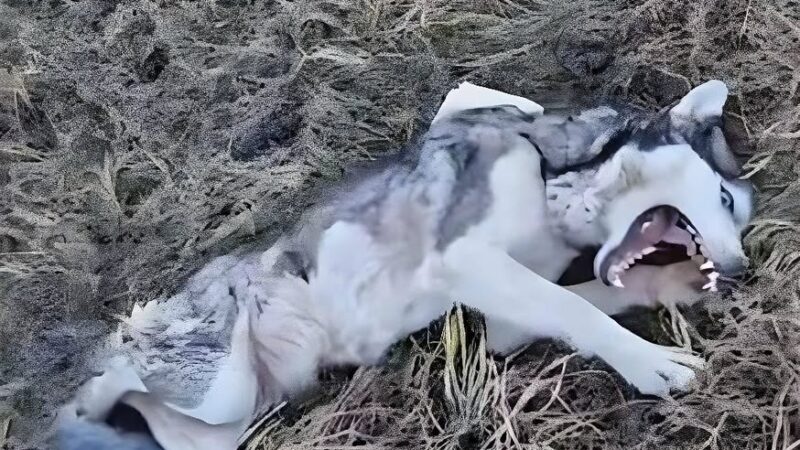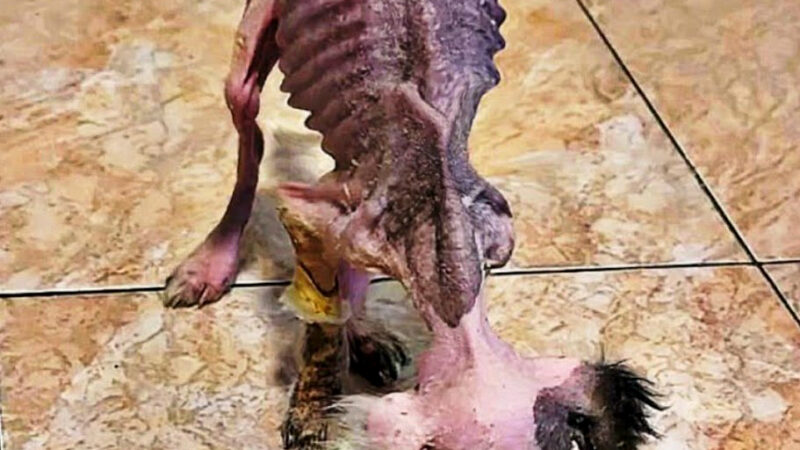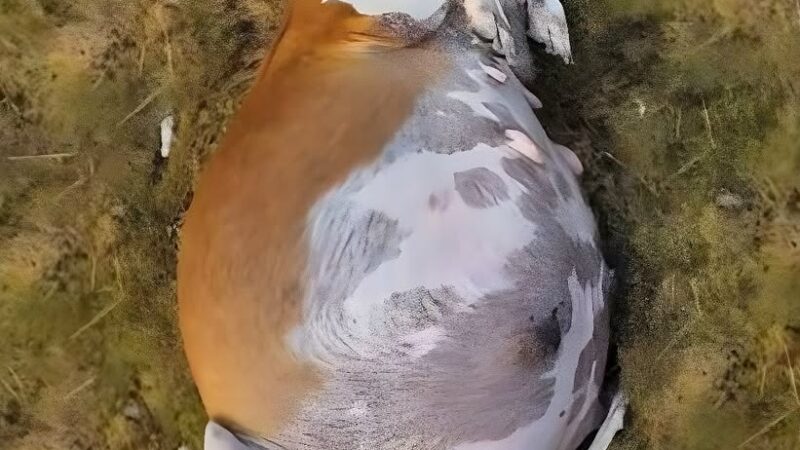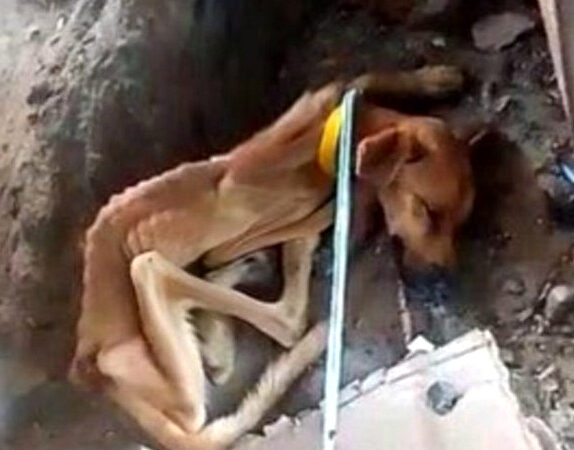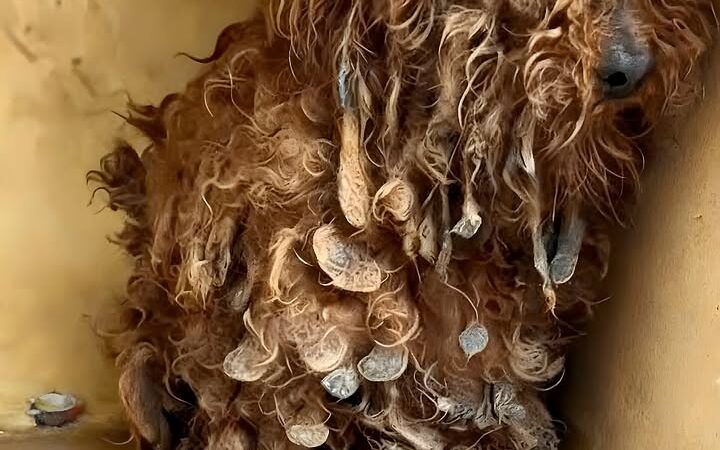The Silent Guardian: What One Dog’s Standoff with Wolves Reveals About True Loyalty

No command. No call. Just instinct—and unshakable loyalty. That cold morning, a pack of hungry wolves crept close. Among our sheep was a mother and her newborn lambs, still unsteady on their feet. My dog sensed the danger before I did. Without hesitation, he ran. He placed himself between the wolves and the lambs, standing firm. The wolves circled, growled—but he didn’t back down. His silent message was clear: You won’t pass. The standoff ended not with a fight, but with the wolves retreating. One dog’s courage had turned them away. Later, the lambs curled up beside him, their tiny bodies pressed against his. He didn’t look for praise or reward. His only mission was to protect—and he did.
Watching that scene unfold from the porch, my breath caught in my throat, a frozen cloud in the crisp morning air. The world seemed to shrink to that single, tense tableau: the circle of predators, the vulnerable flock, and the solitary sentinel who stood as a living wall between them. The moment the wolves turned and vanished back into the treeline, the silence they left behind was more profound than the growls that had filled it. It was a silence heavy with awe. As I walked out to him, the frost crunching under my boots, he did not bound toward me for affirmation. His gaze was still on the horizon, his body still coiled with a quiet readiness. He was not my pet in that moment; he was a force of nature, an embodiment of a duty so ancient it felt sacred. The lambs, in their innocent wisdom, understood this. They sought not just warmth but the epicenter of their safety, pressing against the very being that had shielded them from oblivion. This was a language far older than human words—the language of the protected seeking their protector.
This event was more than a dramatic encounter; it was a profound lesson in the nature of a bond forged over thousands of years. We, as humans, often project our own complex emotions onto our dogs. We see love, happiness, and loyalty through a human lens, often equating it to affection, obedience, and a desire to please. But what I witnessed that morning was something more primal and pure. It was not loyalty born from a desire for a treat or a pat on the head. It was the loyalty of a guardian, a genetic inheritance passed down through countless generations of dogs bred for one purpose: to defend their flock. His actions were the culmination of a silent pact made between our species long ago. We would provide food and shelter, and in return, they would offer their vigilance, their strength, and, if necessary, their lives. He was not simply following a command; he was fulfilling his very reason for being.
The psychology of the standoff itself was a marvel. He did not need to resort to savage violence; his power was rooted in his absolute certainty. In the world of predators, hesitation is a weakness and fear is an invitation. My dog displayed neither. He stood with a stillness that spoke of unshakeable resolve. His stance, his low warning growl, the unwavering focus in his eyes—it all communicated a single, unambiguous message to the wolves: the cost of reaching those lambs would be too high. The wolves, intelligent and calculating creatures, understood this calculus. They were opportunists seeking an easy meal, not warriors seeking a battle against a determined foe. They tested his perimeter, assessed his intent, and found it to be absolute. They were not defeated by aggression, but by a courage so complete that it radiated an undeniable strength. It was a victory of spirit, a testament to the idea that true power often lies not in the capacity for violence, but in the unwavering will to prevent it.
In the days and weeks that followed, my relationship with him shifted. The comfortable dynamic of man and dog was now layered with a deep, abiding respect. I no longer saw him as just a companion who shared my home and land, but as a partner in the stewardship of this life we had built. I watched him on his patrols, his methodical path around the perimeter of the pasture, his ears constantly attuned to the whispers of the wind. He was performing a job, one he took with the utmost seriousness, yet he found a quiet contentment in his work. He required no praise because the safety of the flock was his reward. The gentle bleating of the lambs, the calm grazing of the ewes—this was his measure of success. It made me reflect on our own human motivations, how often we seek external validation for our efforts, how we measure our worth in applause or compensation. His mission was simpler and, in many ways, nobler. His work was his purpose, and its successful execution was its own fulfillment.
This inherent sense of duty is something we have perhaps lost touch with in our modern world. We are taught to pursue passion, to seek happiness, but the concept of a steadfast, selfless duty can feel archaic. Yet, watching him, I saw its profound beauty. His life was not a pursuit of fleeting pleasures; it was a commitment to a larger whole. He was an integral part of an ecosystem, a vital link in the chain of survival for the creatures under his care. He gave them the freedom to live without fear, and in return, they gave his life an undeniable meaning. This is the essence of the guardian’s role, and it contains a wisdom we would do well to remember. True fulfillment often comes not from what we gain for ourselves, but from what we contribute to the well-being of others.
The image of those newborn lambs curled against his powerful body is one that will never leave me. It was a perfect portrait of the relationship between strength and vulnerability. His immense courage was not for his own sake; it was entirely in service to the most fragile lives in his care. He was their shield, their warmth, their living promise of another sunrise. He is older now, his muzzle graying and his steps a little slower, but the guardian’s spirit in his eyes burns just as bright. The lambs he saved that day are now grown, with lambs of their own who graze peacefully under his watchful eye. His legacy is written not in stories, but in the continued, unbroken lineage of the flock he has spent his life protecting. He remains a silent teacher, a constant reminder that the most powerful forces in this world are often the quietest: a sense of duty, an unwavering courage, and a loyalty that asks for nothing in return.

